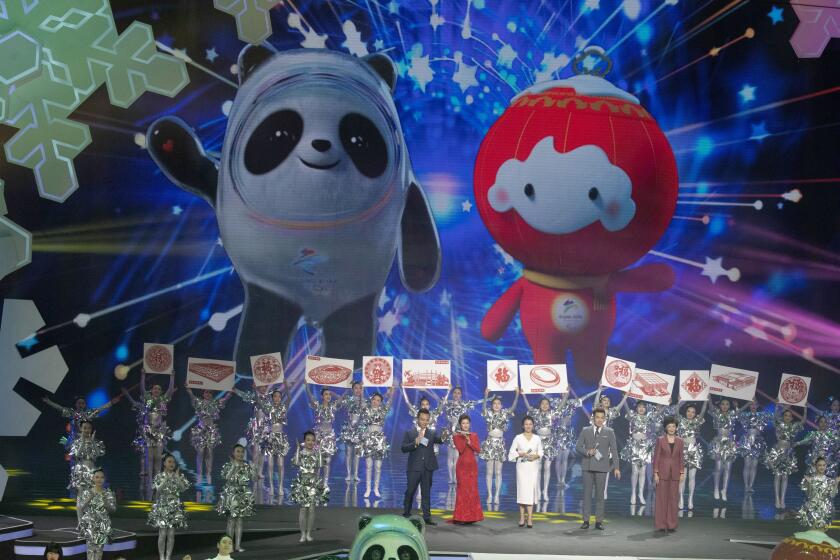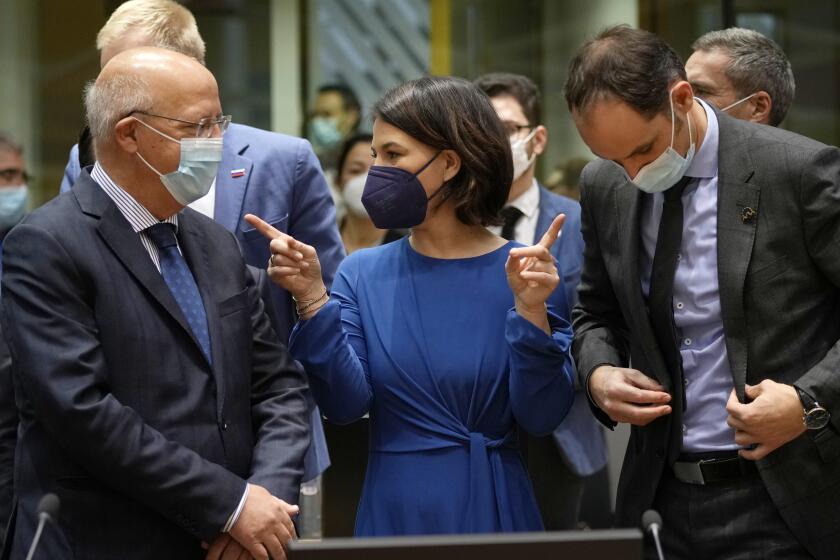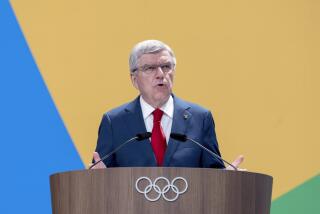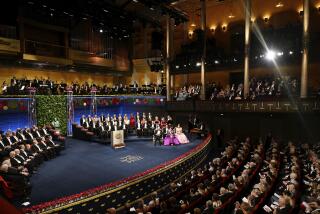Japan will not send a government delegation to the Beijing Olympics
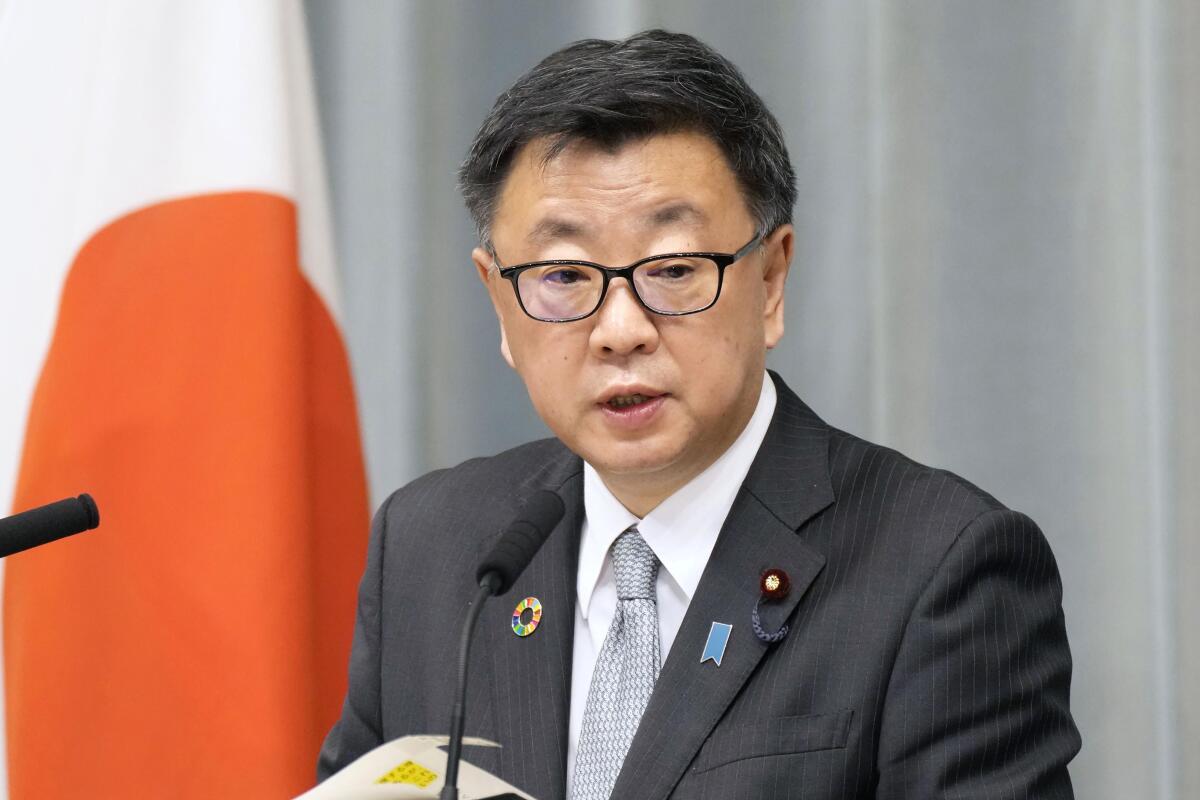
- Share via
TOKYO — Japan said Friday that it would not send a delegation of ministers to represent the government at the Beijing Winter Games but that three of its Olympic officials would attend — a decision that follows the announcement of a full diplomatic boycott by the U.S. and several other countries in protest of China’s human rights abuses.
Japanese Chief Cabinet Secretary Hirokazu Matsuno said at a regular news conference that “we have no plans to send a government delegation.”
He said that the presidents of the Tokyo Olympics organizing committee, the Japanese Olympic Committee and the Japanese Paralympic Committee would go to Beijing. The three officials will be attending at the invitation of the International Olympic and Paralympic Committees to represent the JOC and JPC, Matsuno said.
Asked if this amounted to a diplomatic boycott, Matsuno said: “We don’t use a particular term to describe how we attend.”
Japan’s decision not to send a government delegation follows a similar move by the United States and other democratic nations, including Australia, Britain and Canada, which cited China’s human rights violations.
China’s Foreign Ministry appealed to Japan, which hosted the Summer Olympics just five months ago, not to politicize sports.
Regardless of the Biden administration’s intention, the debate over boycotting the 2022 Winter Games in Beijing isn’t going away.
“We hope and urge the Japanese side to honor its commitment with China to supporting each other in hosting the Olympic Games and not politicizing sports,” Chinese Foreign Ministry spokesman Zhao Lijian said. “China is confident in working with all sides to uphold the Olympic spirit of ‘together’ and present the world a streamlined, safe and splendid Olympic Games.”
As a staunch U.S. ally but with China as its biggest trading partner, Japan is in a difficult position and has taken a softer approach than its Western partners on the human rights situations in China’s Xinjiang region and Hong Kong.
Prime Minister Fumio Kishida has made human rights a key part of his diplomacy, creating a special advisory position to tackle the issue. He has also said he hopes to have constructive relations with China. Asked repeatedly in recent weeks about what his government would do regarding the Beijing Olympics, he responded only that he would make a decision in Japan’s national interest.
On Friday, Kishida said Japan believed it important “for China to guarantee the universal values of freedom, respect for basic human rights and the rule of law, which are universal values in the international community.”
Several European Union nations have made it clear they have little appetite to join the U.S. in its diplomatic boycott of the Beijing Winter Games.
Japan took those points into consideration and made its own decision, Kishida added.
He has faced growing calls from hawks within his ruling party as well as from opposition lawmakers to make a decision quickly to join a diplomatic boycott of the Winter Games.
China has accused the U.S. and other countries of violating the Olympic spirit by setting aside political neutrality.
Japanese athletes will take part in the Games, which are scheduled to open Feb. 4.
“Japan hopes the Beijing Olympics will be held as the festival of peace in the spirit of the Olympics and Paralympics,” Matsuno said.
More to Read
Sign up for Essential California
The most important California stories and recommendations in your inbox every morning.
You may occasionally receive promotional content from the Los Angeles Times.
